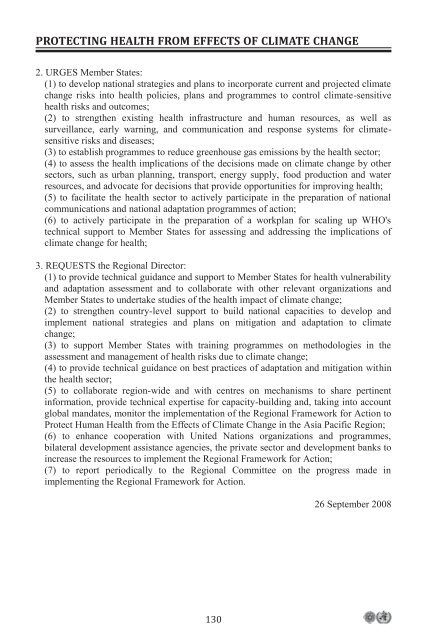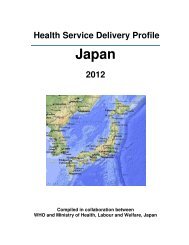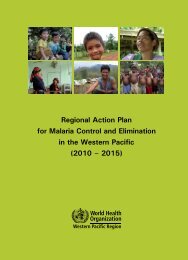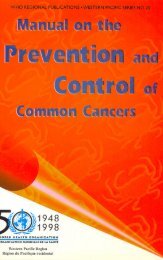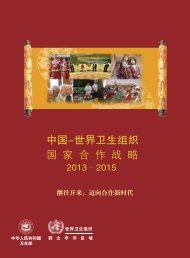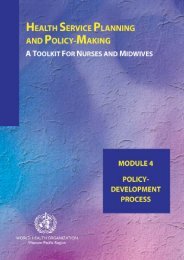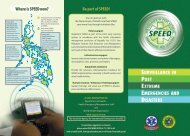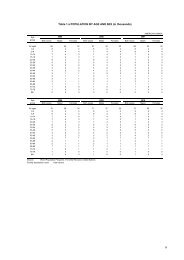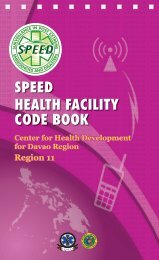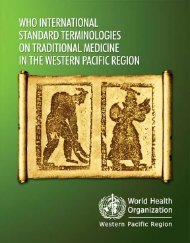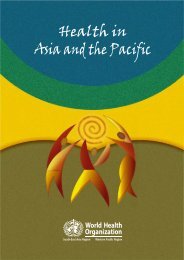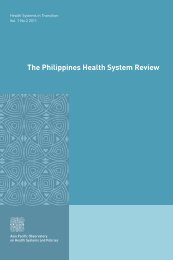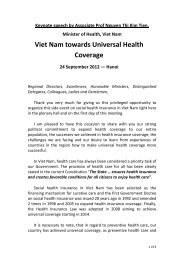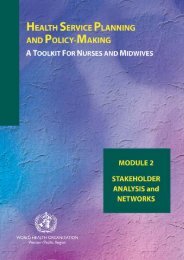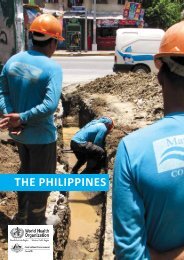Untitled - DOH
Untitled - DOH
Untitled - DOH
- No tags were found...
Create successful ePaper yourself
Turn your PDF publications into a flip-book with our unique Google optimized e-Paper software.
PROTECTING HEALTH FROM EFFECTS OF CLIMATE Policy CHANGE Handbook2. URGES Member States:(1) to develop national strategies and plans to incorporate current and projected climatechange risks into health policies, plans and programmes to control climate-sensitivehealth risks and outcomes;(2) to strengthen existing health infrastructure and human resources, as well assurveillance, early warning, and communication and response systems for climatesensitiverisks and diseases;(3) to establish programmes to reduce greenhouse gas emissions by the health sector;(4) to assess the health implications of the decisions made on climate change by othersectors, such as urban planning, transport, energy supply, food production and waterresources, and advocate for decisions that provide opportunities for improving health;(5) to facilitate the health sector to actively participate in the preparation of nationalcommunications and national adaptation programmes of action;(6) to actively participate in the preparation of a workplan for scaling up WHO'stechnical support to Member States for assessing and addressing the implications ofclimate change for health;3. REQUESTS the Regional Director:(1) to provide technical guidance and support to Member States for health vulnerabilityand adaptation assessment and to collaborate with other relevant organizations andMember States to undertake studies of the health impact of climate change;(2) to strengthen country-level support to build national capacities to develop andimplement national strategies and plans on mitigation and adaptation to climatechange;(3) to support Member States with training programmes on methodologies in theassessment and management of health risks due to climate change;(4) to provide technical guidance on best practices of adaptation and mitigation withinthe health sector;(5) to collaborate region-wide and with centres on mechanisms to share pertinentinformation, provide technical expertise for capacity-building and, taking into accountglobal mandates, monitor the implementation of the Regional Framework for Action toProtect Human Health from the Effects of Climate Change in the Asia Pacific Region;(6) to enhance cooperation with United Nations organizations and programmes,bilateral development assistance agencies, the private sector and development banks toincrease the resources to implement the Regional Framework for Action;(7) to report periodically to the Regional Committee on the progress made inimplementing the Regional Framework for Action.26 September 2008134130


